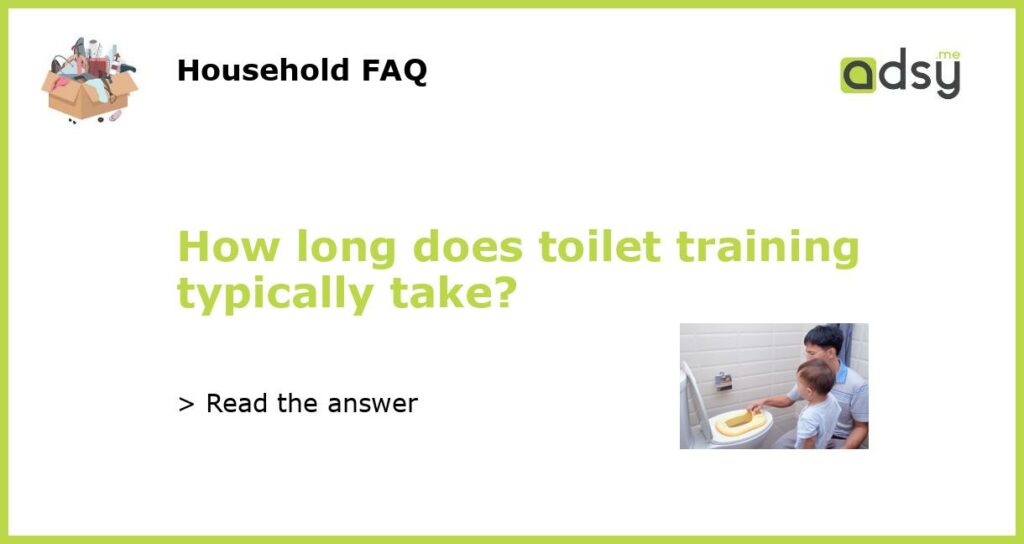Understanding the Toilet Training Journey
Toilet training, also known as potty training, is a significant milestone in a child’s development. It is a process that allows toddlers to learn how to use the toilet independently instead of relying on diapers. While every child is unique and may have individual factors affecting their progress, there is a general timeline that most children follow during toilet training.
The Average Duration of Toilet Training
On average, toilet training typically takes around three to six months. However, it is essential to remember that this is just an estimate, and each child has their own pace. Some children may take longer, while others may learn faster. Factors such as the child’s readiness, consistency in training, and the approach used can influence the duration of toilet training.
Signs of Readiness for Toilet Training
Before starting toilet training, it is crucial to observe your child for signs of readiness. These signs may include increased interest in using the toilet, staying dry for longer periods, the ability to communicate their needs, and displaying an awareness of when they have passed urine or stool. Keeping an eye out for these signs will help determine if your child is ready to begin the toilet training journey.
Strategies for Successful Toilet Training
There are various strategies you can employ to make the toilet training process more successful and efficient. Firstly, establish a routine by taking your child to the bathroom at regular intervals, such as after meals or upon waking up. Encourage your child to sit on the toilet or a child-sized potty chair while they are learning. Positive reinforcement, such as praise or rewards, can motivate your child during toilet training. Additionally, be patient and supportive, as accidents are part of the learning process.
Seeking Professional Advice if Needed
If your child is taking significantly longer than expected to achieve toilet training milestones or if you encounter challenges during the process, it may be beneficial to seek professional advice. Healthcare professionals, such as pediatricians or child psychologists, can offer guidance and support tailored to your child’s specific needs. They can help identify any underlying issues and provide strategies to ease the toilet training journey for both you and your child.






